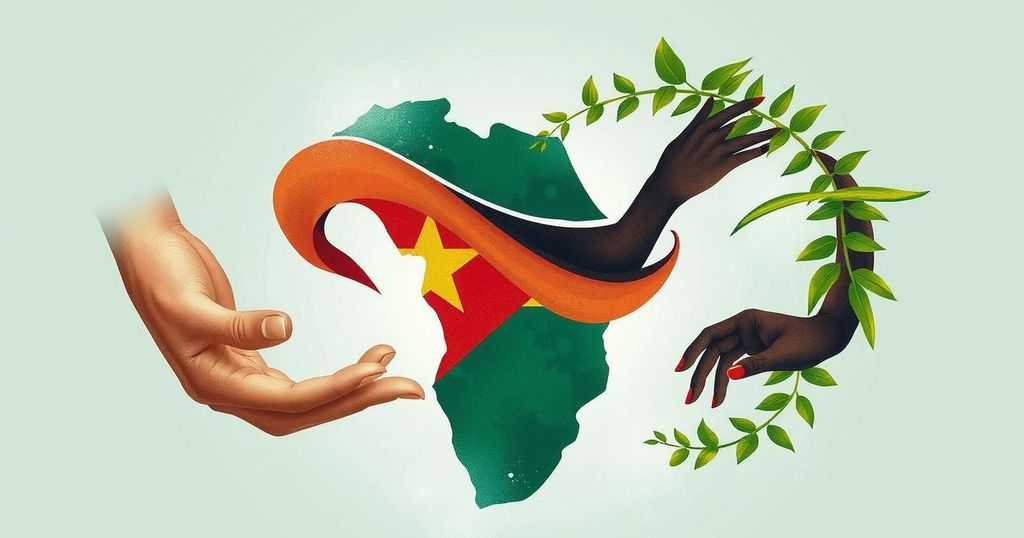Urgent Intervention Needed: Mozambique on the Brink of Chaos

Mozambique faces severe political instability following disputed elections, with opposition leader Venancio Mondlane returning from exile to claim unjust results. State violence has escalated, prompting calls for external intervention, particularly from South Africa. The SADC, criticized for previous inaction, must take decisive measures to restore democracy and prevent a humanitarian crisis in the region.
The recent elections in Mozambique have led to significant turmoil, particularly following the return of opposition leader Venancio Mondlane from exile. His declaration of being the “president-elect of the Mozambican people” highlights the disputed election results, which saw the ruling Frelimo Party maintain a firm grip on power despite independent observers condemning the electoral process as neither free nor fair. Amidst growing unrest, violence erupted as government forces clashed with supporters of Mondlane, who rallied against the alleged government-sanctioned abductions and killings of opposition members.
In the aftermath of the elections, Mozambicans witnessed increased state violence, with over 300 casualties reported in recent months. These events have prompted civil society groups to approach South African President Cyril Ramaphosa for assistance, seeking international intervention involving various judicial bodies. This reaction underscores a significant distrust in the Southern African Development Community (SADC), which has seemingly failed to foster democracy and protect human rights in Mozambique.
Efforts by the SADC to address the escalating crisis have come late, with previous endorsements of the October elections undermining their credibility. As public confidence in democratic institutions erodes, the urgent need for proactive engagement by SADC is apparent to prevent Mozambique from spiraling into deeper turmoil. The civil unrest is compounded by economic disruption and questions of law and governance, raising concerns about the country’s stability and future.
The SADC’s earlier inaction stands in stark contrast to the current desperation among Mozambicans, who are looking for a resolution to their plight. The organization must shift its approach and work to hold the Frelimo government accountable for its actions. Failure to act decisively may lead Mozambique to a state of collapse reminiscent of its past civil conflicts, threatening the safety and livelihoods of its citizens.
President Chapo’s swift initial act of dismissal against the police chief highlights an attempt to restore public trust in the administration. However, the legacy of violence remains fresh in the minds of the people, who continue to demand accountability and justice. The SADC must now ensure that such crisis does not recur in future electoral cycles to preserve regional stability and democracy.
The Southern African Development Community (SADC) has historically been responsible for maintaining peace and democracy in the region. However, recent events in Mozambique have exposed failures in this mandate, particularly regarding the integrity of electoral processes and the government’s treatment of dissent. The post-election violence experienced in Mozambique has raised alarms both locally and internationally, prompting civil society activists to call for external intervention. The history of governmental oppression and civil unrest in Mozambique emphasizes the urgency for regional bodies like SADC to intervene and uphold democratic principles.
The state of affairs in Mozambique presents a critical juncture for both its citizens and regional leaders. The SADC’s failure to adequately respond to the current crisis could have dire consequences, not only for Mozambique but for the entire Southern African region. Immediate and concrete action is required to ensure that the electoral process is respected and to prevent further violence and instability. The opportunity for SADC to reclaim its relevance and commitment to democracy in Mozambique is now or never.
Original Source: www.aljazeera.com







